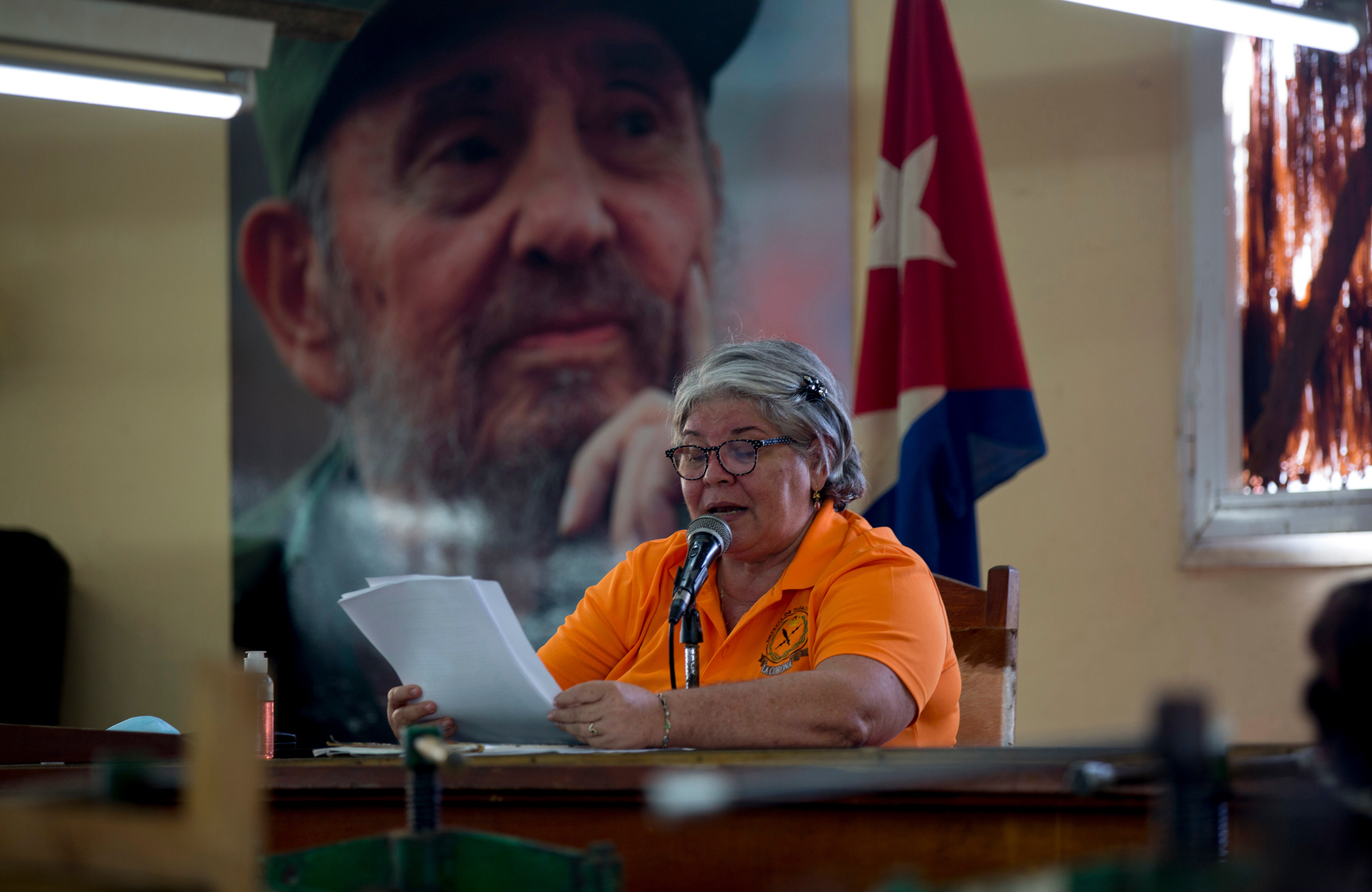In Cuba, novels and news accompany rolling of cigars
Every morning Odalys de la Caridad Lara Reyes gets to work and starts to read out loud

Your support helps us to tell the story
From reproductive rights to climate change to Big Tech, The Independent is on the ground when the story is developing. Whether it's investigating the financials of Elon Musk's pro-Trump PAC or producing our latest documentary, 'The A Word', which shines a light on the American women fighting for reproductive rights, we know how important it is to parse out the facts from the messaging.
At such a critical moment in US history, we need reporters on the ground. Your donation allows us to keep sending journalists to speak to both sides of the story.
The Independent is trusted by Americans across the entire political spectrum. And unlike many other quality news outlets, we choose not to lock Americans out of our reporting and analysis with paywalls. We believe quality journalism should be available to everyone, paid for by those who can afford it.
Your support makes all the difference.Every morning Odalys de la Caridad Lara Reyes gets to work, takes her seat and starts to read out loud. Usually there's a novel. She's partial to books by Victor Hugo and Gabriel Garcia Marquez Of late, during the pandemic, it's just been the news.
She's one of a small band of tobacco factory readers — a job that has become a unique part of Cuba s culture.
“If I am born again, I would be a reader again, because through this profession I have learned in all areas,” said Lara, a short, 55-year-old woman with straight, graying hair, a deep voice and perfect diction.
Arrayed before her at the La Corona factory are scores of workers rolling the world's finest cigars — San Cristobals, Montecristos, Cuabas.
By legend, at least, cigars like the Montecristos and Romeo y Julietas owe their very names to books being read as they were being rolled.
If they like what they're hearing, the torcedores rattle their cutters. If they don't, they may drop them to clatter on the floor.
During the pandemic, so many cutters have been absent so often — sometimes under quarantine or caring for children — that following a novel day to day is impossible. So for the time being, Lara has just read the news, reading items about COVID-19 therapies, the repatriation of migrants or the upcoming Tokyo Olympics.
Sitting at a podium on a wooden stage near a Cuban flag, she'll also read out birthday reminders and factory announcements, such as what's on offer at the cafeteria.
Historians say the practice dates to about 1865, when workers at the El Fígaro factory picked a colleague to read to them as they rolled — promising to produce more cigars to compensate for the missing worker. Later, they chipped in to pay a salary. Despite initial resistance from factory owners, the practice spread.
It became a way for workers to educate themselves. It also helped spread the cause of Cuban independence at the end of the 19th century — political activism that led to temporary bans.
Independence hero Jose Marti once took a turn at the reader's chair to deliver a speech to emigrant Cuban tobacco rollers working at a factory in Florida, said Spanish language Professor María Isabel Alfonso, a specialist in Cuban culture at St. Joseph's College in New York The job “occupies a special place within the Cuban collective imagination,” she said.
Today more than 200 readers are on staff at state-owned factories. The government has declared the job a “cultural patrimony of the nation.” But the workers still elect the readers and vote on what will be read.
In 1996, Lara, then a mother with two small children, was working as an announcer at a radio station when she heard that a position was open at La Corona. She applied and was given a tryout along with two men.
“We spent 20 days reading ... and when the vote came, the workers elected me as the factory reader.”
She said that perhaps the most difficult days came in 2016, when she was reading out accounts of the death of former President Fidel Castro
“We cried to see the loss and there are no words to describe what one feels trying to convey to many people who are also hurting,” she said.